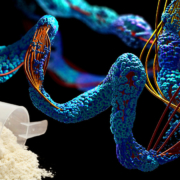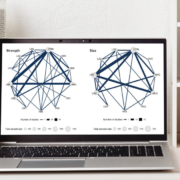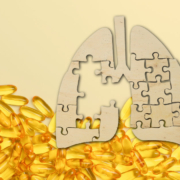Dr. Chet’s Health Memos
 If it’s in the health news today, I’ll be writing about it as soon as I read the research, both old and new. With my email Health Memos, you’ll know more about making lifestyle choices that will help you get and keep good health. These free, concise updates on health are emailed to subscribers twice a week. Subscribe today and get a free MP3, in English or Spanish, of Dr. Chet’s Top Ten Tips—Small Changes for a Healthier Life.
If it’s in the health news today, I’ll be writing about it as soon as I read the research, both old and new. With my email Health Memos, you’ll know more about making lifestyle choices that will help you get and keep good health. These free, concise updates on health are emailed to subscribers twice a week. Subscribe today and get a free MP3, in English or Spanish, of Dr. Chet’s Top Ten Tips—Small Changes for a Healthier Life.
Protein in the 21st Century
The results of the study seemed to be definitive: animal sources of protein yield more absorption of essential amino acids (EAAs). The reason the researchers undertook the study was that the Dietary Guidelines for Americans 2020-2025 (DGA) uses the term “ounce equivalencies” when describing protein sources. From the DGA: one ounce equivalent equals one ounce […]
Best Protein Sources: Animals or Plants?
Protein quality is integral to our health at any age and even more as the years go by. We think of protein as it relates to muscle, but there are many other uses for protein in our body: bones, skin, hair, and the hemoglobin in your blood—virtually every body part or tissue. Then there is […]
How VILPA Can Reduce Cancer Risk
We’re going to switch from mortality to morbidity: in this case, the objective is to reduce the risk of getting one of thirteen types of cancer. This was interesting for all kinds of reasons, but mostly because researchers specifically looked at subjects who claimed they didn’t exercise regularly. The data were part of a sub-study […]
How Many Steps Do We Need?
Last week, we talked about how to lower blood pressure using a form of weight training called isometrics. As I made clear, you won’t look like a body builder, but it can help your cardiovascular health. This week, we’ll look at two recent studies to clarify how much aerobic exercise we need to reduce the […]
How Isometrics Help Lower Your BP
If you have a home blood pressure monitor, try a little experiment on yourself. Set up your monitor and cuff and sit quietly in a chair. After five minutes or so, take a deep breath, exhale, and hit the Start button on the monitor while breathing normally as your BP is taken. Record the results. […]
Isometric Exercise Lowers Blood Pressure
This summer has seen several studies about exercise, so we’ll just continue with the flow from last week. The first study caught me by surprise: isometric exercise lowers blood pressure. When you do isometric exercises, you increase tension in a muscle without moving the joint, such as holding your leg still while you clench your […]
The Key to Building Muscle
The mega meta-analysis I talked about on Tuesday found that every combination of resistance, sets, reps, and number of days per week resulted in increased strength and increased muscle size compared to people who did nothing, but there were some combinations that provided the best results. Finding the Best Approach to Building Muscle Without question, […]
Finding the Best Weight Training Program
This year’s Super Bowl webinar on Aging with a Vengeance focused on muscle mass: hanging on to it or building it up if you’ve lost it, and how to make it happen. The fitness columnist for the Washington Post recently wrote an article on weight training that caught my attention, and I decided to take […]
Ageism in the Mirror
In today’s society, there is one form of discrimination that is tolerated without question: ageism. It’s easy to get the impression that after a certain age, people become more of a burden than a blessing to themselves and others. Recent research confirms that most people over 50 experience ageism. It happens in stores, restaurants, and […]
Research Update: Omega-3s and Lung Function
Lung function declines as we age; depending on how we treat our lungs, our habits can determine the rate of decline. Working in toxic situations (or even worse, smoking cigarettes) can accelerate the decline. That’s why a recent study that examined blood levels of omega-3 fatty acids and measures of lung function found that our […]










